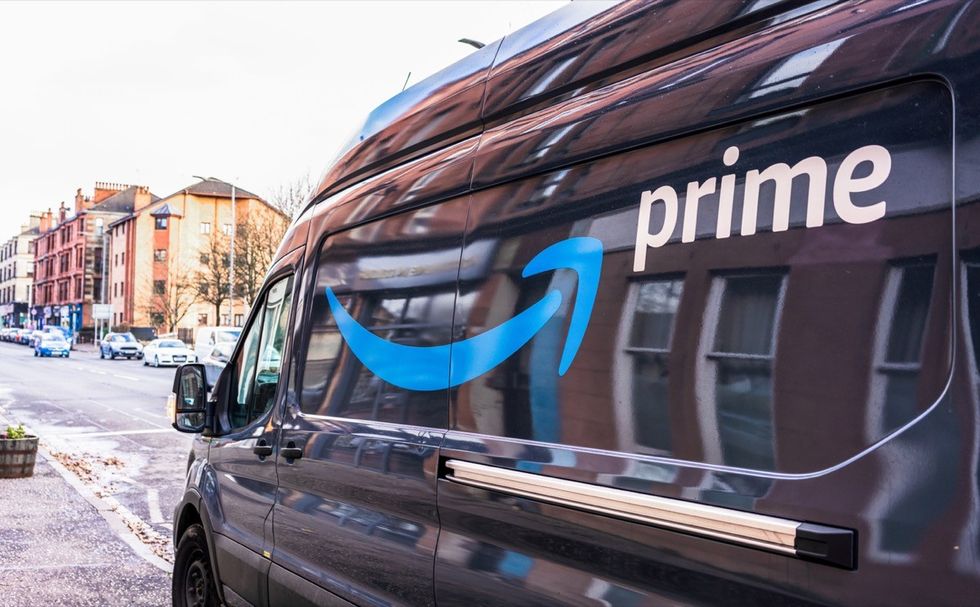Is Amazon deliberately preventing certain neighborhoods from having the option of expedited same day and next-day delivery, despite residents paying for their $139 annual Prime memberships? District of Columbia Attorney General Brian Schwalb says yes; Amazon says the issue is far more complex. Schwalb is filing suit against the online behemoth for secretly excluding two “historically underserved” zip codes in Washington, D.C., that have a majority Black population. “Amazon is charging tens of thousands of hard-working Ward 7 and 8 residents for an expedited delivery service it promises but does not provide. While Amazon has every right to make operational changes, it cannot covertly decide that a dollar in one ZIP code is worth less than a dollar in another,” Schwalb says. “We’re suing to stop this deceptive conduct and make sure District residents get what they’re paying for.” Here’s why Amazon is denying the claims.
RELATED: Amazon Is Rolling Out a Major Policy Change.
Amazon Stops Using Delivery Trucks
iStock
According to the suit, around 2022 Amazon stopped using its own delivery trucks in those specific areas of D.C., instead relying on FedEx, USPS and UPS to deliver packages. This caused Prime customers in those neighborhoods “significantly longer delivery times than their neighbors in other District zip codes, despite paying the exact same membership price for Prime,” according to the lawsuit. “When consumers complained of slow delivery, Amazon concealed the exclusion and misled the consumers to believe it was a coincidence.”
Delivery Slowdown
Shutterstock
According to the AG office’s data, delivery times across the district have improved, while the zip codes in question have experienced slower deliveries. “In 2021, before Amazon implemented its ‘exclusion,’ more than 72% of Prime packages in 20019 and 20020 were delivered within two days of check-out,” the lawsuit reads. “In 2023, after Amazon implemented its ‘exclusion,’ only 25% of Prime packages in 20019 and only 24% in 20020 were delivered within two days of check-out.”
Paying For Prime But Not Getting Benefits
Shutterstock
The AG office is accusing Amazon of engaging in “unfair and deceptive practices”, according to the suit: “Amazon has falsely led District residents in ZIP codes 20019 and 20020 to believe that they would receive Prime’s advertised two-day shipping. Amazon’s deception has caused long-time Prime members in these neighborhoods to pay for faster deliveries they no longer regularly receive. It also has induced prospective Prime members in these neighborhoods to sign up for an expedited delivery service that, for them, often will not exist.”
Targeted Acts Against Drivers
Shutterstock
Amazon spokesperson Kelly Nantel says Schwalb’s accusations are false, and the company has a policy of not delivering in areas that are dangerous for drivers. She also says the company has asked to work with the AG’s office to make it safer for drivers to deliver to those ZIP codes. “We want to be able to deliver as fast as we possibly can to every zip code across the country, however, at the same time we must put the safety of delivery drivers first,” Nantel said in a statement, via NBC New York. “In the zip codes in question, there have been specific and targeted acts against drivers delivering Amazon packages. We made the deliberate choice to adjust our operations, including delivery routes and times, for the sole reason of protecting the safety of drivers.”
Jury Trial

The AG’s office wants Amazon to be forced to provide “restitution and damages for affected Prime members in ZIP codes 20019 and 20020, as well as civil penalties and costs payable to the District.” The District of Columbia is demanding a “jury trial by the maximum number of jurors permitted by law.”




